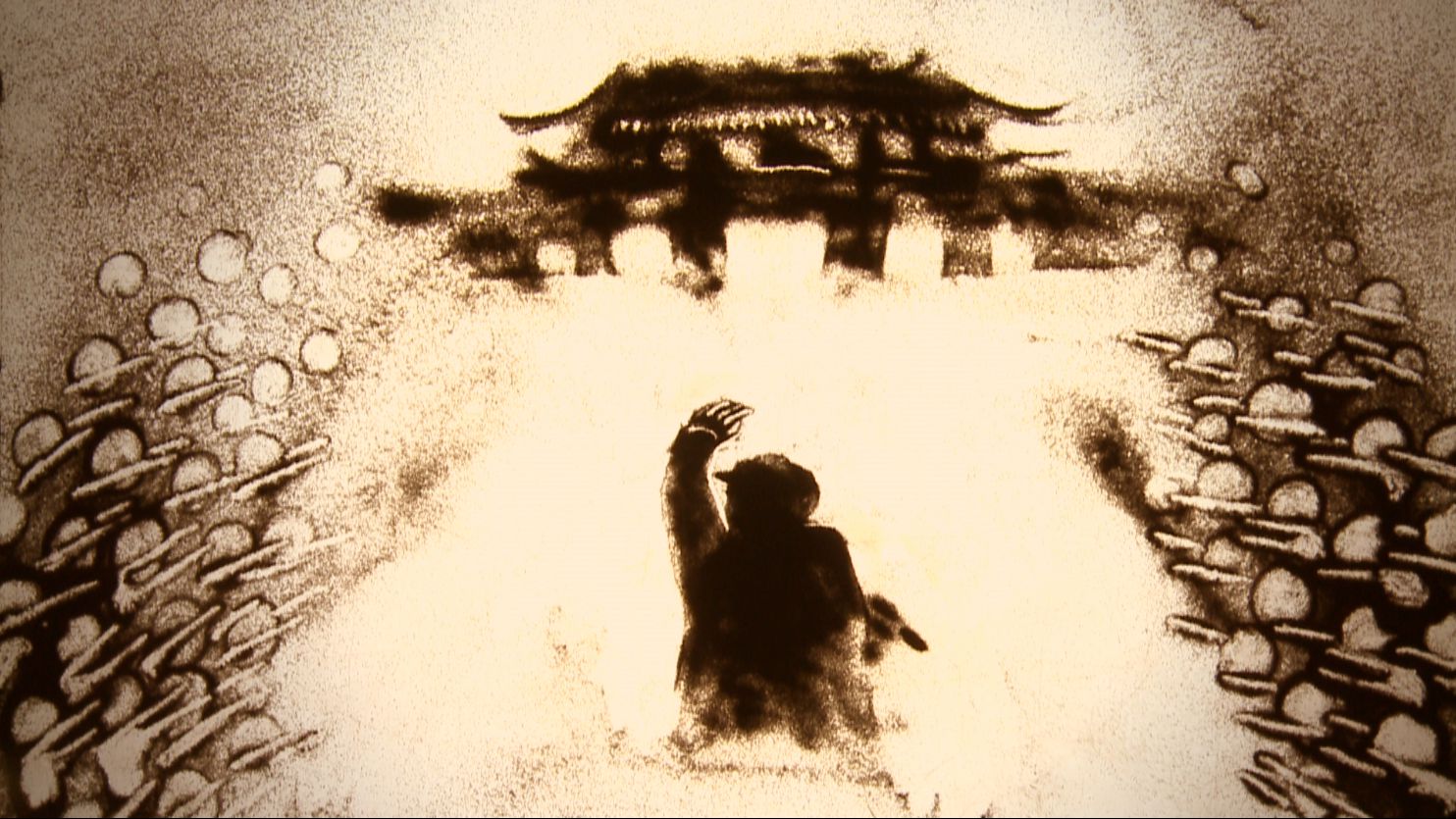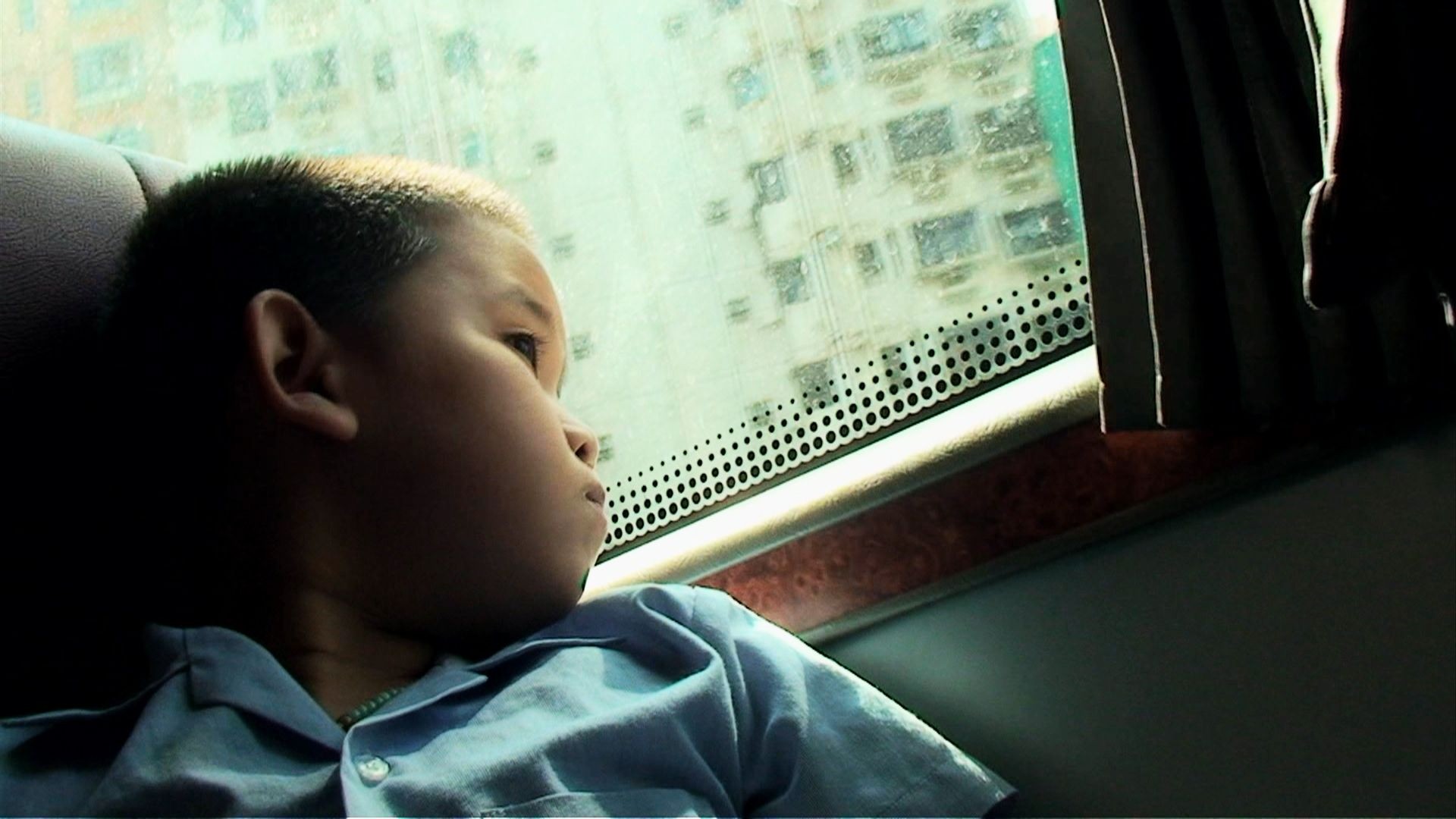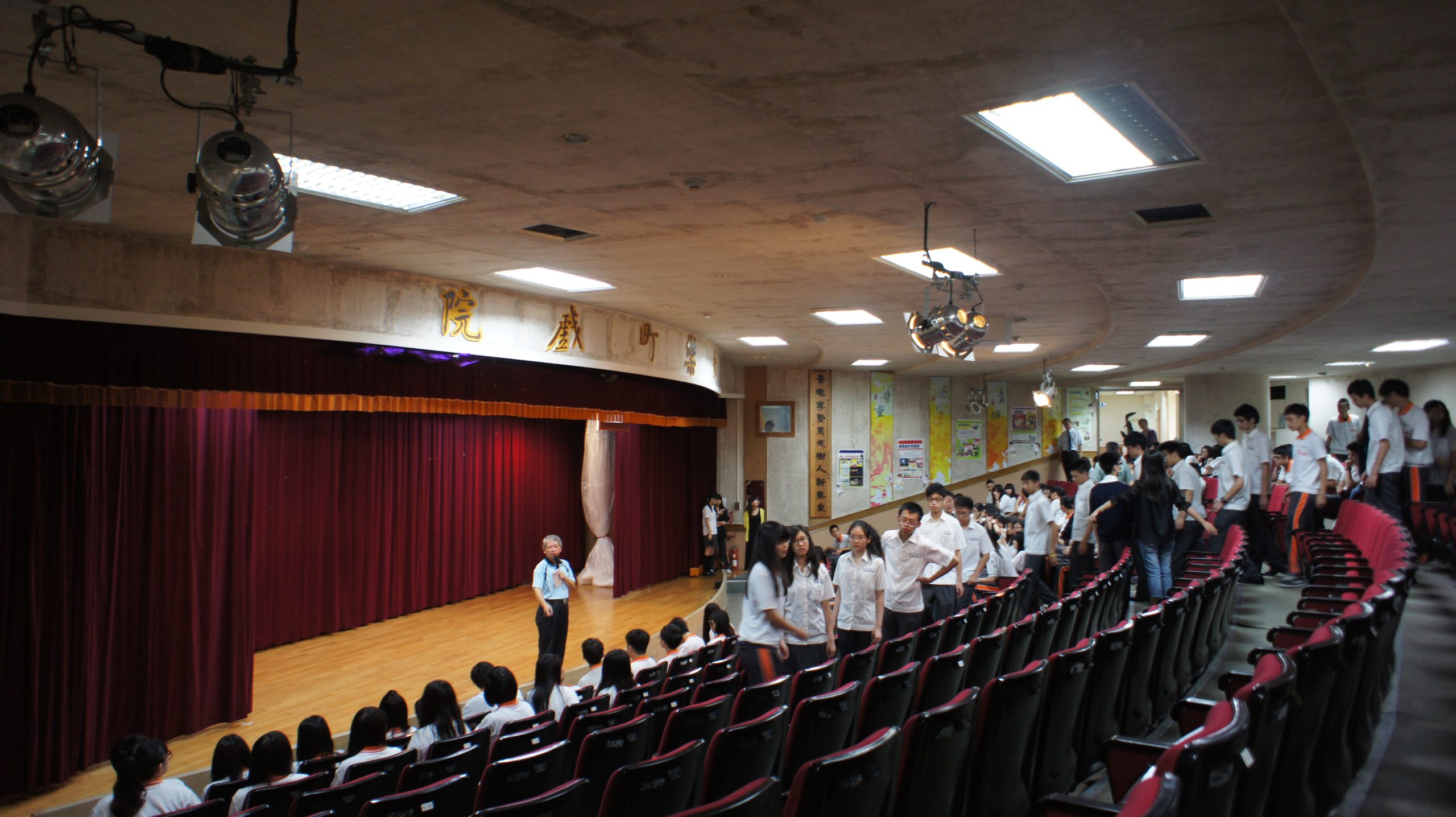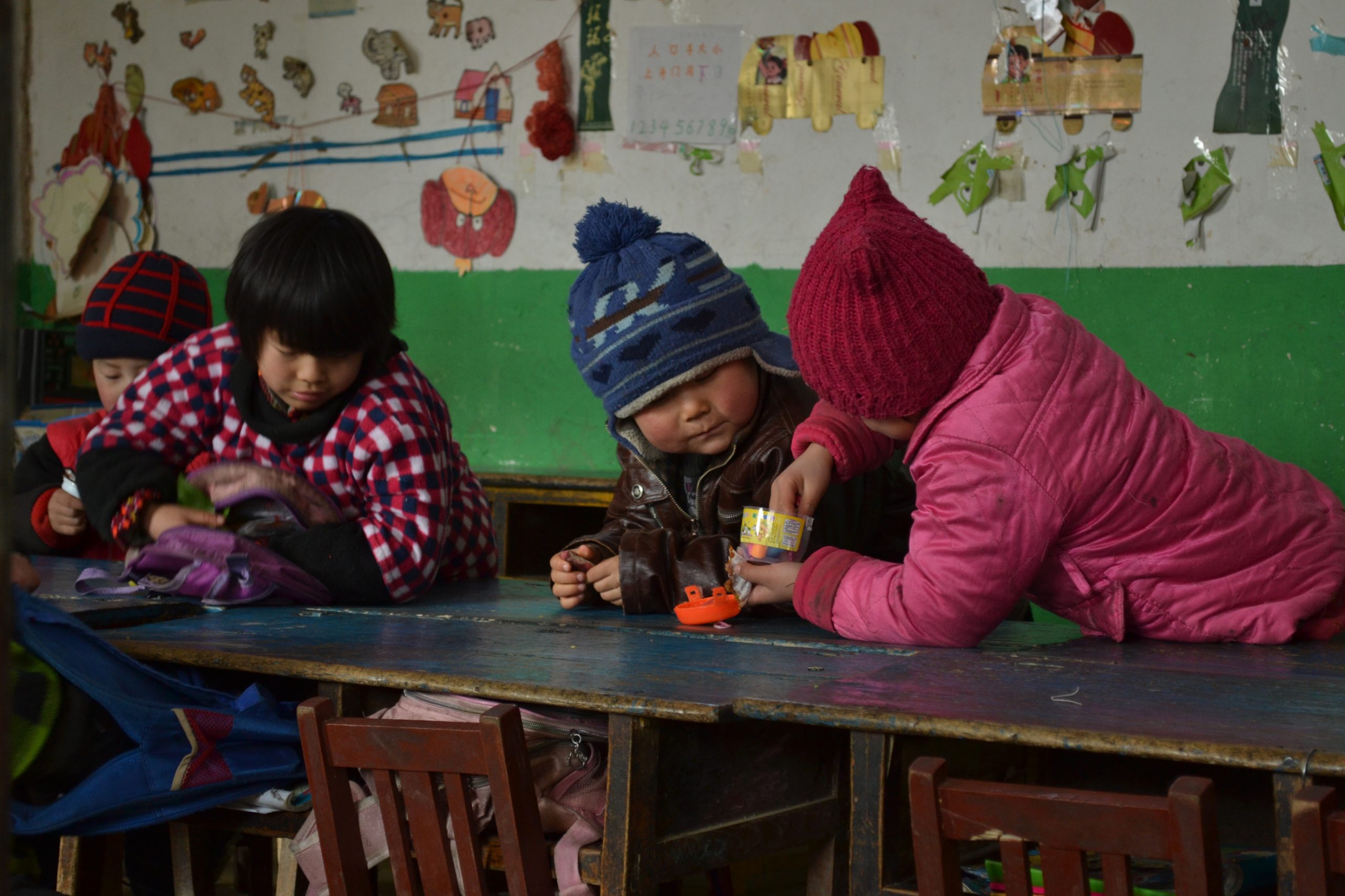China2013 / 89 min
Director:GUO Heng-qi
Inside Dorm 206 live a few boys who are due to graduate from high school. They spend their days eating, chatting, playing cards, and playing with mobile phones, just to kill their youthful time while waiting for their high school diploma. Finally, they graduate from high school, but what are their next steps? Should they get a part-time job or keep pursuing a bachelor degree unwillingly?
When facing such students, teachers could hardly show their passion in teaching. It is impossible for them to get the students perform well in exams, nor getting decent salaries. Most of them just muddle along from day to day and waiting for the school to move. Only Teacher HO still cleans up the bulletin board, taking her job seriously as usual. Teacher HO is not good at social contact. Most of the time, she just sits along silently.
The original site of Duancun High School in Pingyao County, China used to be a temple in the Ming dynasty. It was a gratuitous elementary school in the late Qing dynasty and a higher elementary school in the early years of Republic of China. After the People’s Republic of China was established, it was turned into a county-operated junior high school and became a senior high school in the 1980s. In 2001, Duancun High School enrolled more students. As the number of students exceeded 1400, a new academic building was built next to the sports field. In the summer of 2011, the school merged with another two schools and its 150 students were transferred to a new downtown campus. Thereafter, grass started growing on the sports field. Only MI, the doorman, and his family still live in the old academic building.

Taiwan2013 / 60 min
Director:Albert J.L. HUANG
Everyone’s first school is their home. But in Chinese societies where the school system has fully matured, studying at home has become an anomaly. The importance Chinese place on education is well-known, all parents wish their children to achieve great success; but under a group consciousness where testing is at the forefront of education, manipulating teaching materials to create a diversified education program that addresses each student’s aptitude has become an important topic.
This film looks at four different families – the Polish and Taiwanese CHEN-WERNIK family, the traditional ZHAN family, the LUO family, who adjusted to traditional education yet still chose homeschooling, and the MALCOLM family, who had experienced hurdles in school and found solace in a non-traditional school – and examines their backgrounds which led them all to homeschooling, their situations, and their stories.
Taiwan is currently the only Chinese region which has legalized homeschooling, however its undertaking is still hindered by various problems. The four families in the film have all said “No” to the traditional education system and bravely forged their own paths, confronting mainstream education and societal values which have become riddled with disadvantages and difficulties.
Does the desire for your children to grow up happily contradict the desire for them to become successful? What kind of educational environment should we prepare for our children? What kind of people will society need in the future? How should families with different backgrounds and children with different talents select a proper education? What is best for children? All of these questions require long-term observation and experimentation.
We only have one chance at life. Education has an irreversible impact on children and deserves our concerted efforts.

China 2015 / 76 min
Director:LI Xiaofeng、 JIA Kai
If one day on a noisy street of a city or a dusty road of a remote village in China, you bump into a broken van wrapped in slogans and red flags, with high-pitched patriot songs of the 1960s that hurt your ears, you shouldn’t be surprised. It’s LIU coming for his “Learning From LEI Feng Campaign”.
LIU used to have a good job in the government, but twelve years ago he quit it and left his family behind to promote LEI Feng’s spirit and embarked on a journey that he called “the second long march”. Traveling around the whole country with his old van and few belongings, he is dedicated to the great ambition of establishing a university of Communist International.
The shooting of the film started in 2007 and lasted for seven years. The story unfolds as the protagonist’s journey goes on, a journey that keeps evoking his traumatic past rooted in the Mao’s era, aggravated by his incompatibility with contemporary China. To a certain extent, his personal past and present are intimately intertwined with that of China. The film reveals the subtle relations and the mutual construction between individual and history.

Hong Kong2013 / 72 min
Director:WONG Siu Pong
This documentary explores what it is like growing up in an adult world through children's eyes.
J SHEN and Jacky WONG are good friends, inseparable since they have first met in first grade. J was born to a single-parent family in Hong Kong, raised up by his Mainland-born mother in a small subdivided unit. In order to avoid leaving J home alone, his mother sends him to homes of his classmates in times of her leave to Mainland for visa-renewing. Despite of the fact that Jacky comes from a Vietnamese family, J is often placed under his family's care; the two turn out to become close friends.
Every morning, J and Jacky walk together to Fresh Fish Traders' School in Tai Kok Tsui, where they attend classes. Similar images of one taking care of another are not rare to find in the exclusive community of the grassroots. In the meantime, other classmates of them share the same life, including the Mainland-born trio of Frankie TUNG, Jimmy TAM, and Kiki WONG, a young girl who enjoys particular popularity in class. Hoping for better futures for their children, parents brought them to Hong Kong where they have no choice but to live in cramped and close quarters. The sudden change of environment forces children to re-identify themselves in face of the new culture and values. Is this an investment that will ultimately prove worthwhile?
What does "family" mean to these children? How do they perceive the hopes and dreams of their parents and the expectations of society to "success"? In return, will children's expectations of their parents and society be heard and understood by the adults?

台灣 / Taiwan2013 / 75 min
Director:CHANG Chao-wei
In 1987, the Republic of China lifted the Martial Law and the first bona fide democratic constitution in Chinese history was finally in practice in Taiwan. Seven years later, on April 10th, 1994, a protest was held to call for education reform with four major propositions: practicing small-class and small-school teaching, setting up more senior high schools and universities, establishing the Fundamental Law of Education, and promoting the modernization of education. Efforts to realize such in every aspect of education are continually made through the Education Reform Committee of the Executive Yuan.
In the past 20 years, education reform in Taiwan had been through heated debates and still under scrutiny. In this film, reform advocators, government officials, critics, teachers, students, and parents were interviewed, in an attempt to review its purposes from a historical perspective and to gain insights on the dilemmas it faced along with reasons behind. We structured the film by seven classroom episodes: "History Class: Prequel of Education Reform", "Education Class: When Cram Schools Become Real Schools", "Ethics Class: New Life, Old Ethics", "Economics of Winning and Losing", "Public Administration Class: What Happened to the Public Sector", "Civic Class: General Plans for the Future", and "Biology Class: Species Diversity". Adopting the preluding textbook recitation by elementary school students and humorous stand-up comedy, a serious topic was presented in a light-hearted atmosphere. As we present the testimonies and opinions from reform advocators and witnesses, we hope to look, layer by layer, into the core of education reform and simultaneously into the core of sociocultural reform in Taiwan.

China2013 / 24 min
Director:SHI Yu-bin
The First Song documents the children who attend a kindergarten located on the inland mountain of Shandong Peninsula, China.
The freezing winter of the north locks people in. The classroom, which is less than ten square meters, is the whole world to these children. At a certain time of day, teachers will start boiling water for the children, who would line up spontaneously next to one another to collect their share. This ceremonious ritual enthuses them.
These children demonstrate a thirst for money for reasons we don't delve into for the time being. However, the thirst for money permeates in their games, which imitate their parents' logging trade activities. Every child plays his or her role to the perfection.
Holidays begin soon after the first snow falls and the kindergarten building takes on another function. During Chinese New Year, it becomes the communal shrine for the whole village, with elders watching over the temporary altar set up on the children’s desks and chairs. As the adults celebrate the New Year in their own way, what lies ahead for these children?
The children are idealistic and romantic by nature, and it is with these qualities they view the world around them. At such a tender age, they're unable to understand the complexities of life, or the rights and wrongs in the adult world. What they do understand is their own needs and desires. The complex mixture of innocent and serious expressions of these children probe us to rethink about the village’s reality.

Contact Mail